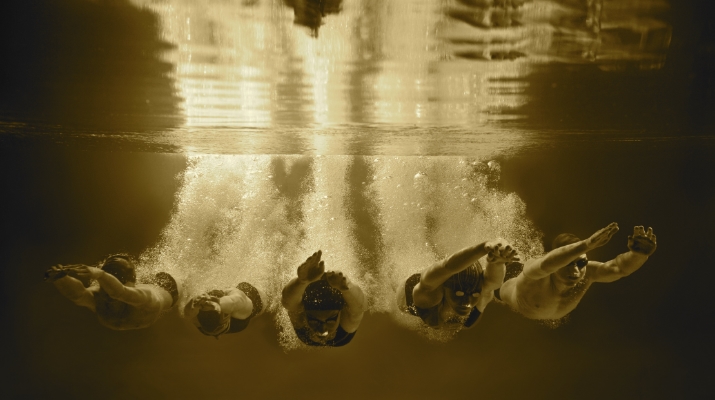Swimming as a popular recreation has been practiced since almost the beginning of time. We know this thanks to the mentions it gets in such famous works of literature such as the Iliad, Beowulf, and the Odyssey. But it was not until the 1830s in England that swimming emerged as a competitive sport.

Just a few years before, the very first indoor pool had opened in England at St. George’s Baths, located in Liverpool. By 1837 the National Swimming Society of Great Britain had been founded, and competitions soon followed. The very first stroke popular in competition was the breaststroke.
By 1896, competitive swimming had grown so popular that it was added to the Olympic Games, and has been a part of the competition ever since. This watershed event perhaps had more to do with the innovations that were to come in competitive swimming over the next century. While the breaststroke was originally the only stroke featured, by 1904 the backstroke was added also.
The year 1912 marked another milestone for competitive swimming, as the first time that women’s swimming was part of the program. The men’s competition had greatly expanded by that point as well to feature the 100, 400 and 1500 meter freestyle, the 200 and 400 meter backstroke and 4×200 meter freestyle relay.
The history books are full of athletes’ names that have helped popularize the sport, led by Johnny Weissmuller. In ten years of competitive swimming, Weissmuller never lost a race, finishing his career with a total of five Olympic golds. He was the first swimmer to finish the 100 meter distance in under a minute. Weissmuller also captured bronze as part of the United States’ 1924 Olympic water polo team.
The next athlete to leave his mark on the world of competitive swimming would be Mark Spitz, who tallied seven gold medals in the 1972 Olympic games along, breaking records in each event as he did. The sport would not see another dominant figure such as Spitz until the arrival of Michael Phelps. Phelps would win two bronze medals at his Olympic debut in 2004, returning in 2008 to eclipse Spitz’s mark for a lone Olympic games by capturing eight gold medals.
FINA, the world governing body of swimming, now officially recognizes 40 individual events in competitive swimming. The sport continues to evolve as the next generation of competitors waits for their chance to shine.